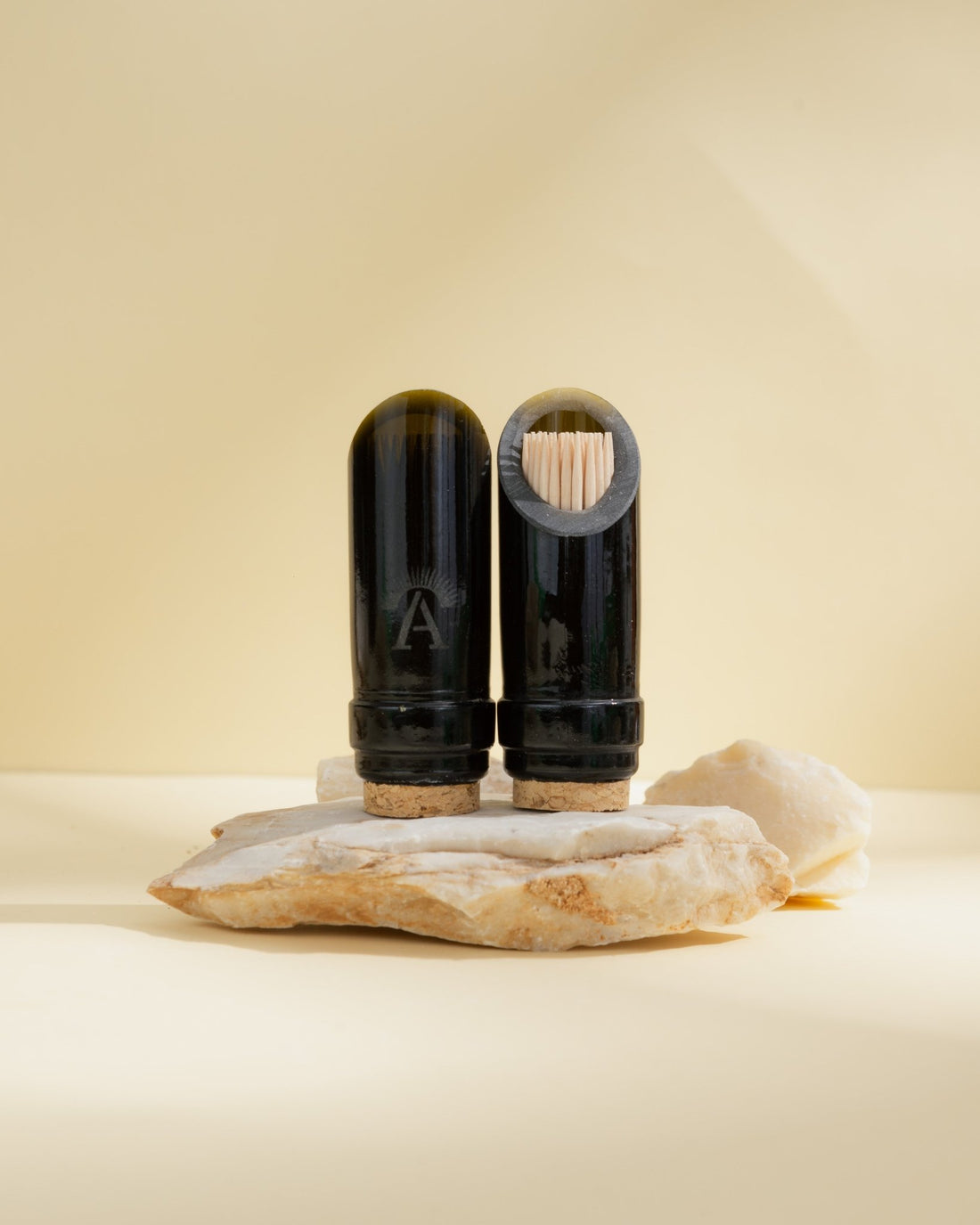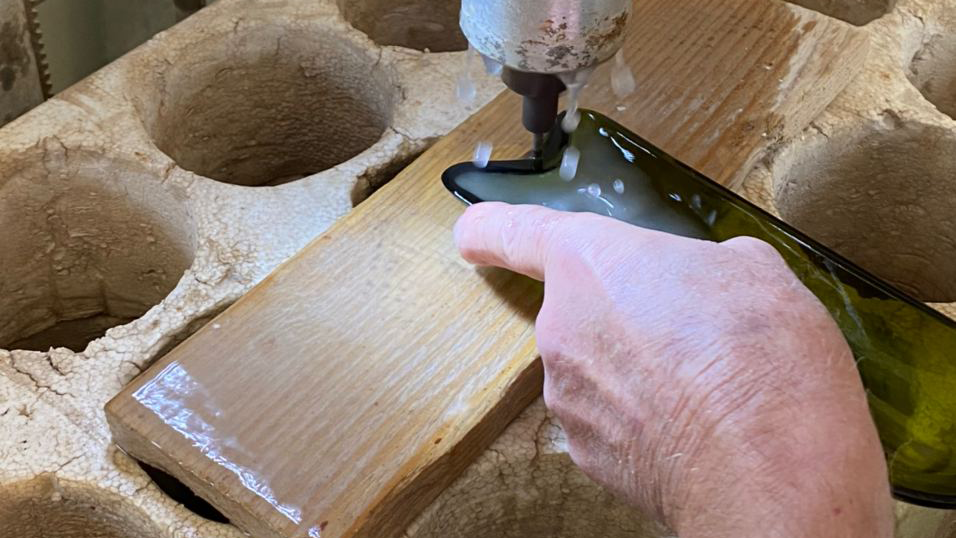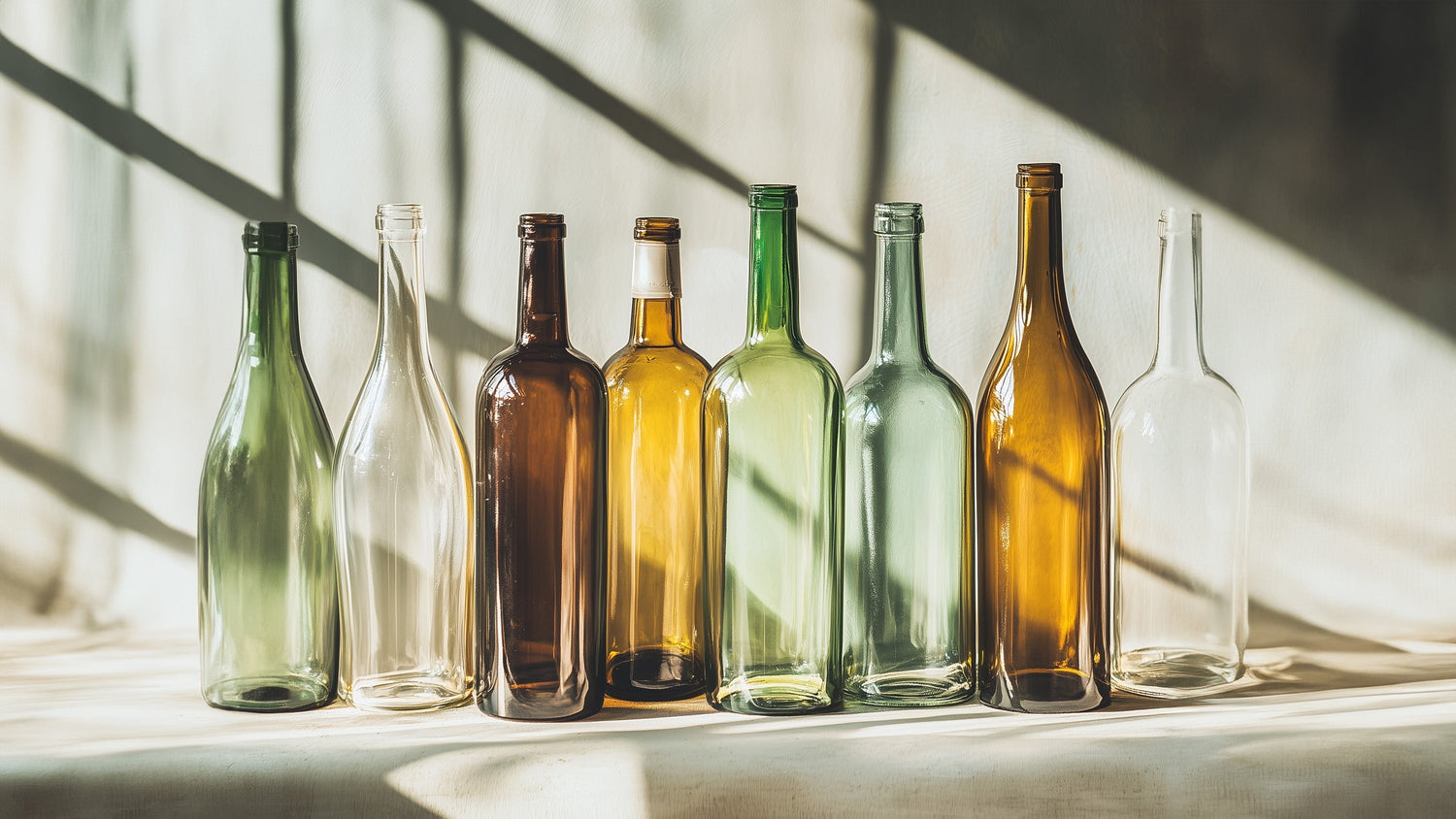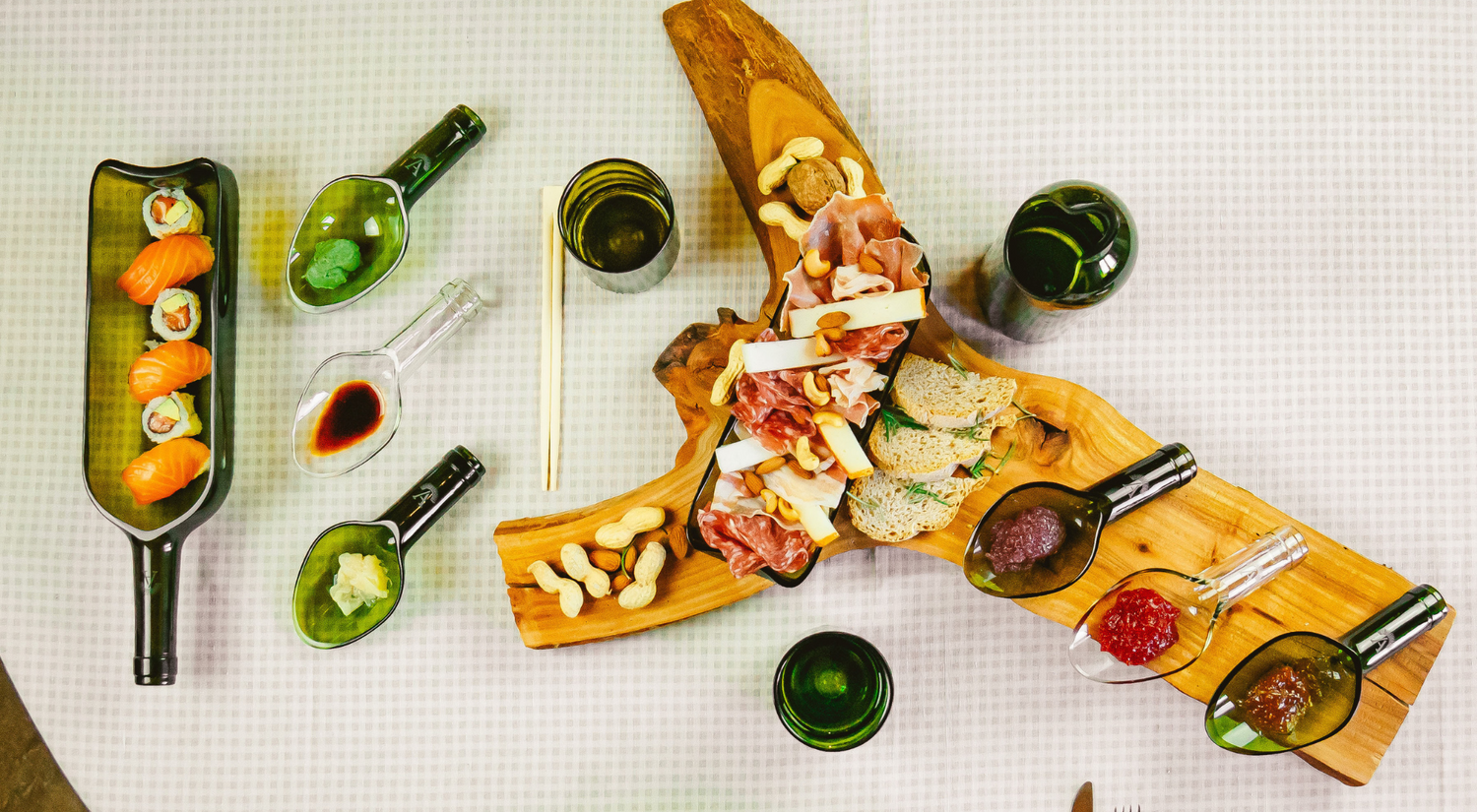If for some it is absolutely not a novelty, perhaps to others it escapes how much the history of Tuscany is tied with that of the glass.
Often overshadowed by fame by the Venetian, the Tuscan glassmaker’s craft has ancient roots that even go back to the Roman period and boasts a history of excellence.
This is why the production of Tuscan glass has reached the present day.
A real wealth, which places as the main center the territory of Empoli and Siena, which can boast the magnificent traditions of Montaione and Colle val d'Elsa.
In this article we will discover more about glass processing in Tuscany and we will see how glass today represents an important resource for the local economy.

History of glass in Tuscany
The tradition linked to glass in Tuscany is thought to begin in Roman times. The findings of Piazza della Signoria in Florence have brought to light the remains of an ancient glassware dating probably around the fourth or fifth century AD.
However, it is since the thirteenth century that there is more evidence of a real Tuscan glass production, in the years when Venice represented excellence in the sector.
However, the real revolution occurred in the second half of the fifteenth century, when Tuscan production managed to emancipate itself from the hegemony of the Murano crystal.
But the road is still long and it will be necessary to wait until the seventeenth century for the Florentine glassworks to reach the Venetian level.
In these years the workshops were reorganized and new foundries built: like the one in the Medici casino of San Marco or the one opened in the garden of Boboli. Among the new glass shapes, with a typically Mannerist taste, we can observe stem glasses, conical glasses, vases with lid, parade plates and table triumphs.
They are important years for the history of glass, in this period science is in turmoil, they are the years of Galileo Galilei and telescopes. Lenses are invented to look at very distant planets or other things for very small things. Glass production finds an extraordinary synergy with a new material: optics.
With a scientific spirit the eighteenth century made its way, leaving behind the seventeenth century Baroque and noble to make room for the bourgeoisie of merchants and the Enlightenment.
Thus the processing of glass becomes simpler, less pompous, but production is increased, to encourage the bourgeois attempt to imitate the opulence of the Lords.
The growing demand brings the flowering of different production centers to satisfy it, among these assume a fundamental role those of Montaione and Colle Val d'Elsa.
Craftsmen soon became masters and Florentine glass began to gain importance. In this regard, the Grand Duke began to introduce protectionist measures to prevent foreign workers from entering and local glassmakers from working across the border.
Thus began a flourishing period, glass production grew and took two paths: an elite, with a more refined production, and one dedicated to green glass, more common.
In 1820 the first crystal furnace was inaugurated in Colle Val d'Elsa.
History leads us to the unity of Italy, in this period the Fabbrica Pisana is opened by the French company Saint Gobain, which becomes one of the most important in Tuscany.
The eternal rivals from Livorno, who created the Società Anonima Vetraia Italiana in 1884, compete with them.
Then the two world wars will create obvious problems for the sector, which will regain strength in the years of reconstruction and economic boom.
The glass tradition of Montaione
The first evidence of the glass tradition of Montaione is a document dating back to 1279, which attests to the presence of furnaces for the manufacture of glasses and glass objects.
The woods that surrounded the territory, rich in wood used to feed the furnaces, were a fundamental push for the production of Montaione.
In the following centuries the master glassmakers of Montaione continued to expand their activity throughout the territory of Valdelsa. Until Empoli, where even today glass factories play an important role for the local economy.
The quality and beauty of the glass objects produced in Montaione, make it clear that the artisans enjoyed great consideration and respect. Their professionalism was also officially recognized. As can be seen from the various notices issued during the eighteenth century by the Grand Duke of Tuscany with which the master glassmakers of Montaione were explicitly protected.
From 1700 it will also begin to produce glass for the bottling of wine.
Today, in Montaione, glass processing has been supplanted by other economic activities. Some of the old factories and glass furnaces have been transformed into agritourism and holiday homes.

The glass-making tradition of Colle Val d'Elsa
Colle Val d'Elsa is also known as the "city of crystal", its glass production starts from the fourteenth century, going hand in hand with the entire territory of Valdelsa.
Since 1331 the production of glass, which then evolved in the '900 in that of crystal, is one of the typical elements of the city, which was defined in past centuries as the "Bohemia of Italy".
Colle today produces 90% of Italian crystal and more than 13% of international crystal.
It is a reality where history was made by men, enlightened artisans who have characterized the culture of the place.
The future of glass processing
The future of glass is Green. The importance of recycling and reuse are at the heart of the projects concerning this material. One of the most impressive qualities of glass is the possibility of being recycled to infinity, during its recovery in fact the waste of material is 0%.
This is the context of waste collection, which in Tuscany aims to lead to the single recycling of glass as a material, separating it from ceramics and aluminum.
The aim is to use only recycled glass in the future, with significant economic and environmental savings.
Finally, we can say that the future of glass is closely linked to the creation of a circular economy, a virtuous cycle of use and recovery of resources.
At Amarzo, we adopt this line of thinking in our production of 100% recycled glass. Our philosophy is to look to the future of glass, without forgetting the artisan history of Valdelsa, where our company is located.
Discover in the store our 100% recycled glass products, made in Italy, with a refined Tuscan design.


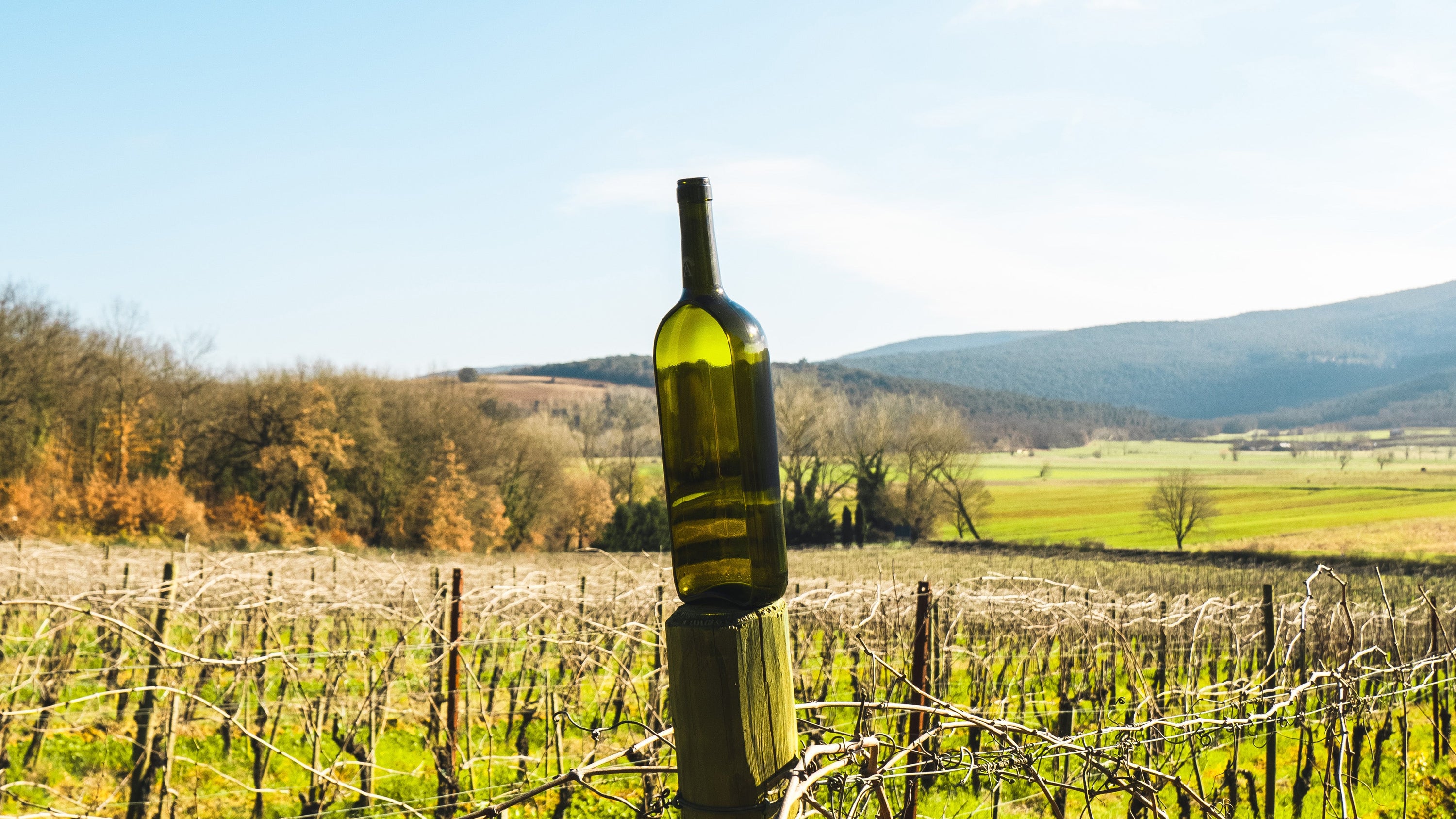
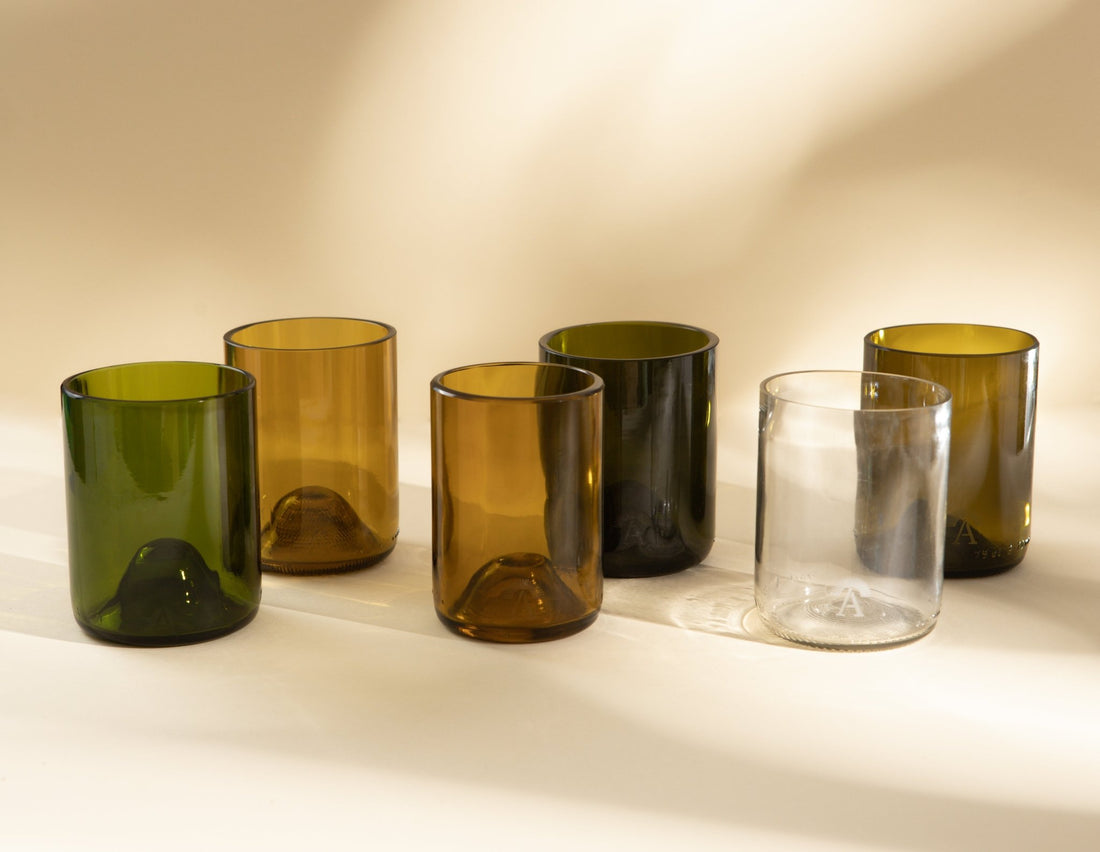
![Vassoio con Collo di Vetro Riciclato [Lav. Lucida]](http://amarzo.com/cdn/shop/products/vassoio-con-collo-125288.jpg?v=1699712421&width=1100)

